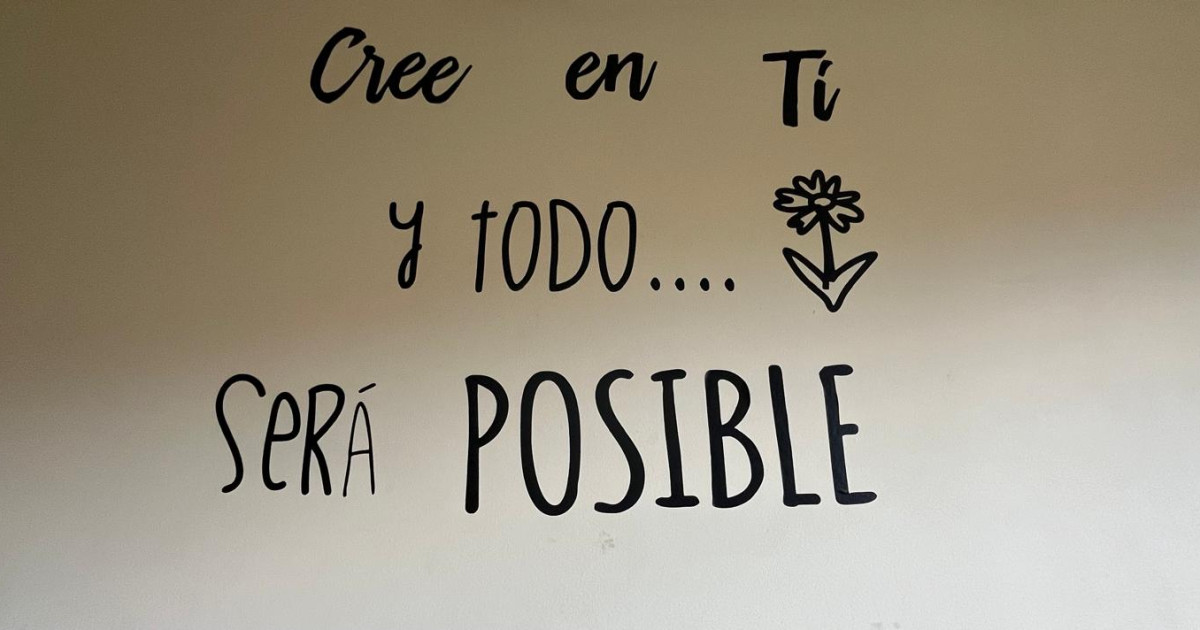Phrases like “I can achieve my goals”, “I love myself as I am” or “Believe in yourself and everything will be possible” not only decorate the rooms of many teenagers and young people, but have become part of their daily lives. Repeat these things regularly in front of the mirror, before leaving the house or being exposed to stressful situations.Positive affirmations“Used to change negative thought patterns and Promote an optimistic mindset.
In favor of positive affirmations
Raise self-esteem and confidence
Positive affirmations are like having a friend (you) telling you good things, and unlike criticism, they can help improve our perception of ourselves, promoting greater self-acceptance, self-love, and confidence in our abilities.
By focusing on the positive aspects of life and self, positive affirmations can help develop an optimistic mindset and a more positive attitude toward the challenges and difficulties of everyday life.
By repeating “Everything will be okay” affirmations that promote calm, inner peace, and emotional well-being, you can reduce stress and anxiety, and promote a state of relaxation and calm.
Encourage personal growth and good habits
Positive affirmations can serve as a constant reminder of good habits, healthy habits, personal goals, aspirations and values, motivating people to work on their personal growth and achieve their full potential.
Since they promote calmness, confidence and good habits, positive affirmations can really help improve performance in different areas of life, such as work, study or sports.
It’s not all positive
Although there is research supporting the power of positive affirmations to improve emotional health in certain circumstances, scientific evidence is not always conclusive.
Beware of “toxic positivity”
If used excessively or as a way to avoid confronting difficult feelings or underlying issues, positive affirmations can become a form of denial or avoidance of reality. This may make the process of adaptation and problem solving more difficult.
Positive affirmations can conflict with deeply held personal beliefs or generate resistance if they are not consistent with individual experience or perception. For example, a person who feels chronic sadness may find it difficult to accept a positive statement such as: “I am completely happy and I love my life.”
If positive affirmations are not sincere or real to the person repeating them, they may lose their effectiveness and even lead to feelings of dishonesty or insincerity.
If you can dream it, you can have it, be… The expression “delulu” is popular among young people (abbreviation for Phantom In English it means “rave”). In the context of casual conversations, especially on the internet and social media, the word “delulu” is used to describe someone who has unrealistic ideas or expectations, but be careful because it is sometimes used to praise someone’s ability to think outside the box.
Some critics warn of the danger of becoming melanophobic, predicting that we should maintain a positive attitude at all times, even when we experience legitimate emotions such as sadness, anger, or frustration. Sadness and anger are necessary, they help to understand that “something” has happened to us, to heal and to lick our wounds.

“Social media evangelist. Student. Reader. Troublemaker. Typical introvert.”

:quality(85)/cloudfront-us-east-1.images.arcpublishing.com/infobae/TEQF6EONZRFGLLLDIDD4L2O4EE.jpg)

:quality(75)/cloudfront-us-east-1.images.arcpublishing.com/elcomercio/XU32LRAEZFDDPNVHLFU3CKVBYY.jpg)



More Stories
Venezuela ranks fourth in female leadership in science and technology in Latin America
In Portuguesa and Sucre they explore the wonderful world of science
The university court overturns the expulsion of two teachers and a chemical sciences student